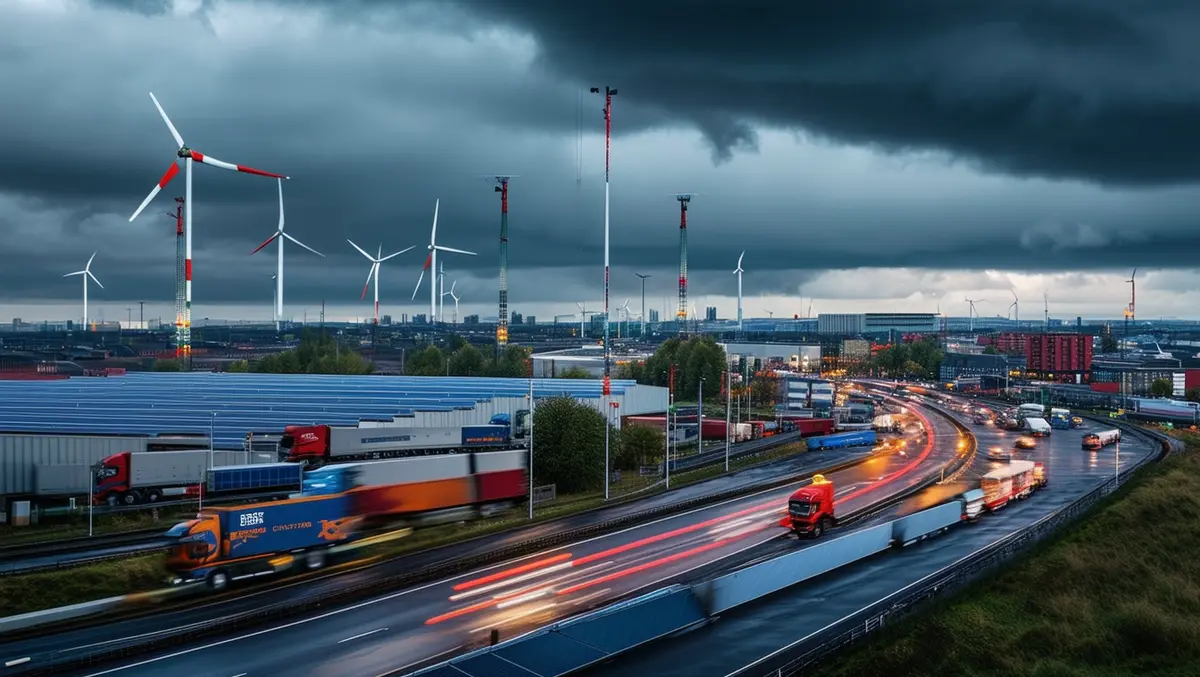
UK businesses struggle to meet net-zero targets due to logistics
New research from Wincanton reveals that more than half (54%) of UK businesses are doubtful about meeting their net-zero goals, with logistics identified as a key factor in achieving these targets by 83% of respondents. The survey, conducted among supply chain, transport, and logistics decision-makers, highlights significant concerns about the cost and viability of alternative fuel technologies.
The findings show that 66% of organisations feel pressured to meet their net-zero targets. A substantial 80% believe that efforts to reduce CO2 emissions in their logistics fleet will lead to increased costs. Consequently, 66% of businesses have deprioritised hitting these targets due to perceived cost pressures. Contrastingly, 37% of respondents have reported cost reductions as a result of their CO2 emissions reduction initiatives.
Only a quarter (25%) of the surveyed decision-makers believe that alternative fuel vehicles will become affordable within the next four to six years. There is also a lack of knowledge on how to proceed with emissions reduction, with 59% of respondents wanting to reduce the environmental impact of their logistics fleet but not knowing how, and 42% admitting a lack of understanding on further fleet optimisation methods.
Given these challenges, 55% of businesses are not currently engaged in reducing emissions in their logistics fleets. There is also a strong expectation for government intervention, with 84% of respondents believing that the government should play a larger role in supporting CO2 reduction efforts.
"Sustainability remains a high priority for UK businesses. But it's clear they aren't making enough headway when it comes to reducing emissions in their supply chain operations. This is the result of the lack of viability and affordability of alternative fuel vehicles and ongoing cost pressures during a challenging economic period. We can see that a gap is emerging between their priorities and the action needed to reach net-zero," said Paul Durkin, Chief Customer and Innovation Officer at Wincanton.
Improved collaboration could potentially enhance sustainable performance, with 65% of respondents agreeing that collaboration is essential for the future success of the logistics industry. However, businesses face challenges such as difficulty finding collaboration partners (28%) and insufficient internal resources to manage these projects (26%).
Helen Flanagan, EyeQ Product Director at Wincanton, commented, "More efficient use of existing capacity is key. Last year the Government reported that almost a third of the total vehicle kilometres travelled by HGVs in the UK were empty. Put simply, too much fresh air is being moved around the UK, contributing to high emissions and high costs for businesses. Through technology, UK businesses can collaborate and optimise their fleets to minimise wasted capacity and shift the dial on sustainable logistics."
The new report from Wincanton, titled "Share the Road to Sustainability," provides a detailed examination of the survey results and explores ways businesses can optimise their fleets and collaborate to reduce costs and emissions while maintaining customer service standards.


